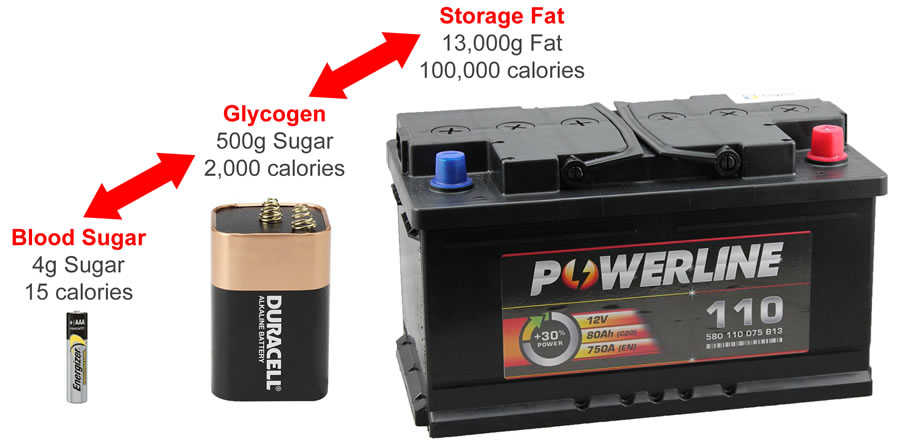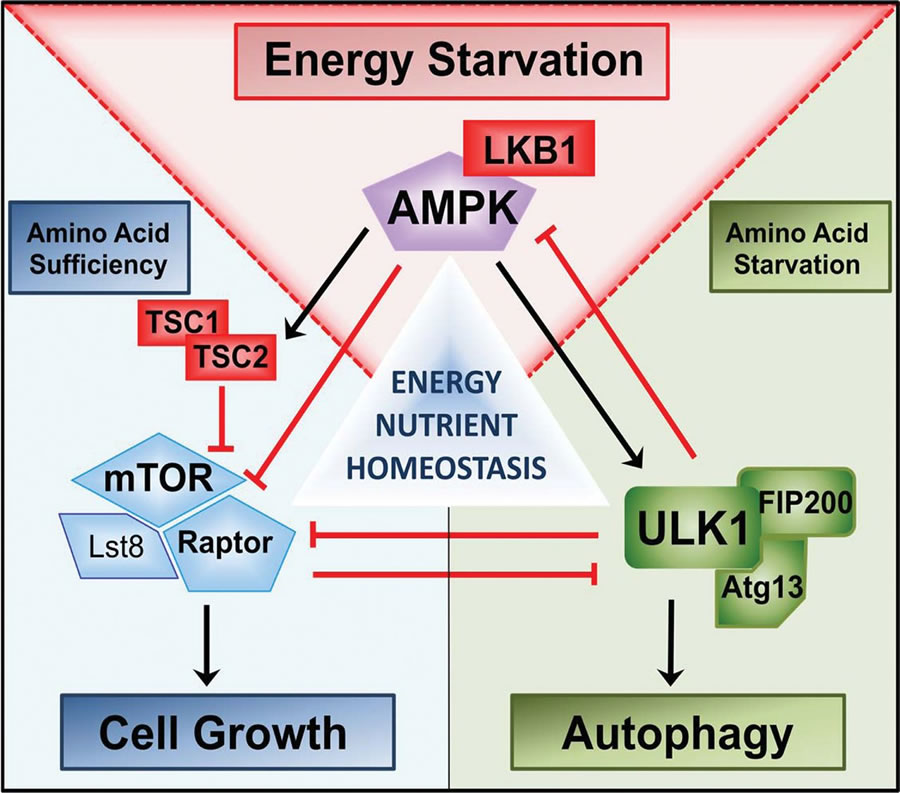Autophagy
You have upwards of 40 trillion cells in your body. Each day, 50 billion cells are completely replaced. Human body cells are also constantly becoming damaged as a normal part of metabolic processes (as we age and deal with free radical damage, our cells become more and more damaged).
Autophagy refers to an ordered digestion of cellular components. This is how a cell deals with unused or poorly folded proteins. Autophagy helps to prevent diseases such as cancer, loss of brain function, heart disease, diabetes, liver disease and infections. Researchers believe that autophagy is a survival mechanism that has anti-ageing benefits. The body cleverly uses the waste produced to create new building materials that aid in repair and regeneration.
- Autolysis deals with unexpected cell problems or cells that get damaged or infected.
- Apoptosis is programmed death of a damaged or superfluous cell that prevents the outpouring of potentially damaging molecules.
Cells must recycle to survive
Autophagy is the creation of a autophagosome. This collects cellular components (a storage bin) which are then moved to the cell’s lysosome to be broken down into their parts for recycling. If autophagy is low, it can result in Alzheimer's, Parkinson's, cancer and other diseases. If autophagy is too high then the cells can die. So balance is the key.
Fasting triggers autophagy
When cells have a plentiful supply of oxygen, glucose, amino acids and other essentials, they switch off, or turn down the rate of autophagy. Eating a diet of sugary processed foods throughout the day will put the brakes on autophagy. If cells sense a decrease in essential supplies (such as in a period of intermittent fasting or fasting) autophagy is boosted. It is thought that autophagy peaks after 12-16 hours without food. So if you skip breakfast and have an eating window later on in the day, you will start to feel the benefits of increased autophagy.
Skip breakfast or eat an old fashioned one
"Breakfast is the most important meal of the day, because it is the meal that gets the day started” Lenna F. Cooper, in the 1917 issue of Good Health, edited by none other than Dr. John Harvey Kellogg. The food industry wants you eating from the moment you wake up until you go to bed. We were not designed to do that.
If you do undertake intermittent fasting, such as having an 8 hour eating window, it is much better to break the fast with minimal carbs. Meals such as avocados, omelettes, bacon and other keotogenic style dishes are best. Autophagy really kicks in after a long 72 hour fast (3 days!). A 3-5 day fast is achievable and is practiced by many people every month. But it is recommended that people shouldn't do long fasts if they are skinny or have a terrible diet (you need to have a great balance of vitamins and micro-nutrients).
Your glycogen store
Your body has a tiny amount of glucose in the bloodstream. Your muscles and liver contain about 500g of glycogen (glucose molecules bonded together). When you exercise or don't eat for a period of time, your glycogen levels will be lowered and the body will start to look to its fat reserves for energy. This depletion in glycogen triggers autophagy. If you eat and snack all day long on carbohydrate rich foods, your body will never have the need to deplete glycogen. If you eat before exercise and take energy drinks during a gym session, the result is the same.

Exercise triggers autophagy
Exercise puts stress on the body. Exercise actually causes tiny microscopic tears in the muscles that the body then rushes to heal, making the muscles stronger and more resistant to any further damage you might do. Exercise also depletes your cells of oxygen and glucose which triggers autophagy.
Regular exercise helps you to body to cleanse and rejuvinate. The perfect exercise for autophagy is 20-30 minutes of high intensity training (HIIT). But if you exercise after a carb rich meal or take energy drinks during a workout, glucose will be in plentiful supply and liver glycogen stores will not be called upon.
Autophagy is linked to sleep
While you sleep, your body goes into repair mode. Most functions either turn off or slow down in preparation for the next day. Recent studies show that the brains hippocampus has a distinct rhythm of autophagy that can be altered by fragmented sleep. Your sleep patterns can hold over the body's normal physiology as well as disease processes. A circadian rhythm is any biological process that displays an oscillation of about 24 hours.
- In experimental models, lifespan is significantly reduced with the introduction of sleep disruption which leads to an increase in oxidative stress.
- Patients with Alzheimer's disease and Parkinson's disease suffer disease progression as a result of alterations in the DNA methylation of clock genes as well as medicines that disrupt the circadian rhythm.
- Tumour growth also can occur with the loss of a maintained circadian rhythm and lead to an increased risk for nasopharyngeal carcinoma, breast cancer, and metastatic colorectal cancer.
- The circadian clock system relies upon the regulation of the critical pathways of autophagy to foster cell survival during injury and block tumour cell growth.
The circadian clock relies upon cellular signals and light input to align itself with solar time and oscillate over a twenty-four hour period. This clock receives daily cues from external environmental sources such as daylight and darkness to drive circadian rhythm. Ultimately, the circadian rhythm controls behaviour, normal physiology, and cellular biochemical transmission in an organism.
There is a protein called mTOR that oversees multiple processes in the body such as cellular metabolism, bone formation, diabetes, neurodegenerative disorders, dementia and cancer. In addition, mTOR has a significant role in the modulation of autophagy induction.

Calorie restriction vs fasting
Going on a calorie controlled diet is well known to increase lifespan, probably in part due to the enhanced autophagy. BUT calorie restricting diets drop your baseline metabolic requirement, meaning that you will pile the weight back on. Your body just becomes happy eating less. Contestants on "America's biggest loser" have almost always put the pounds back on (eg a baseline calorie demand dropped from 3500 to 1500).
Intermittent fasting also promotes autophagy, but it does not trash your metabolism. So your body continues to burn off a decent amount of calories. Fasting can help decrease insulin levels and boost blood levels of human growth hormone and norepinephrine. These changes can help you burn fat more easily and help you lose weight.
Autophagy boosting foods?
mTOR is the master regulator of cell growth. In order for cells to control growth, there is close relationship between mTOR and two other protein enzymes called AMPK and ULK1. These 3 sense the energy and nutrient status of the cell and decide what the cell should do (to grow, repair or simply maintain). As we grow older, cellular AMPK activation decreases and weight gain often follows. AMPK is found inside every cell and serves as your body’s master regulating switch. It determines body fat composition and how long you’ll live. When AMPK is activated your body will try and seek energy from other sources such as fat reserves.
mTOR is a protein that helps control several cell functions, including cell division and survival. mTOR may be more active in some types of cancer cells than it is in normal cells. Blocking mTOR may cause the cancer cells to die. When the body is in a glucose, energy rich situation the AMPK and ULK1 pathways are inactive. This is why a low carb diet is cancer preventing and cancer controlling.
So what foods promote autophagy?
Eating generally opposes autophagy, so we must make that clear. But what you eat and when you eat makes a huge impact on autophagy. The worst possible diet would be to do the following two things:
- Eat all day, from the moment you wake up until you go to bed.
- Eat processed foods that are high in simple refined carbs and sugars.
Some foods are known to activate the AMPK pathway, these are: coffee, green tea, berberine, turmeric, ginger, ginseng, olive oil, olives, resveratrol (raisins, red wine), omega-3 oils, quercetin (capers, onions). However, if you are eating all the time and are consuming loads of carbs, it's pointless.
- The best foods to eat are nutrient-dense foods.
- Exercise before your first meal.
- Follow intermittent fasting and try and make your first meal of the day one that is high in fat (bacon, cheese, eggs, yogurts, avocados, healthy nuts, oily fish).
- Try and eat carbs later in the day.
Source: hncbi.nlm.nih.gov, maxkirsten.com, draxe.com, biochemsoctrans.org,

